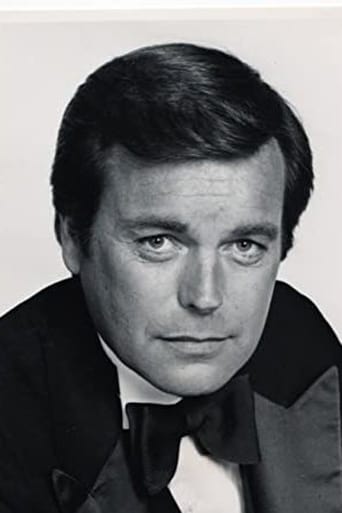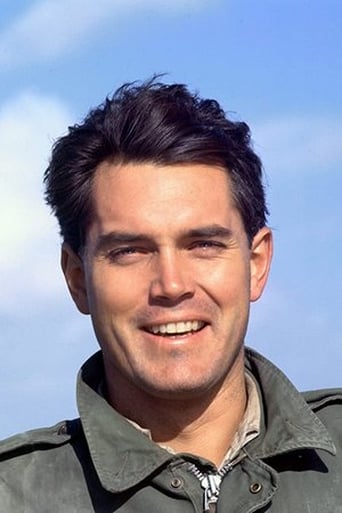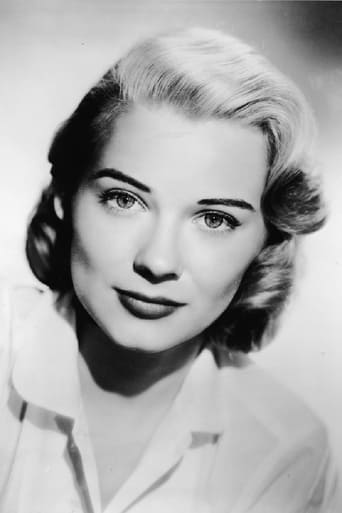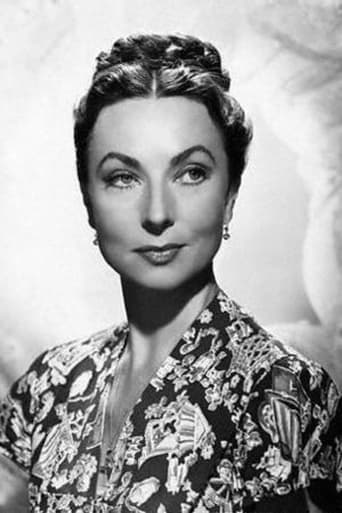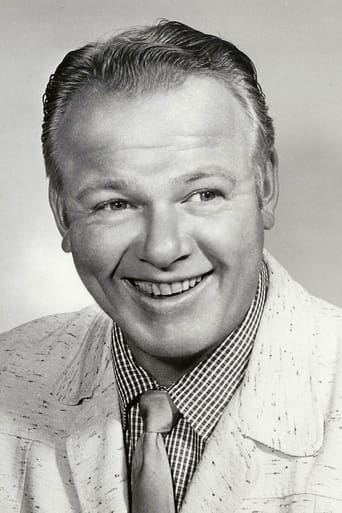Clevercell
Very disappointing...
Intcatinfo
A Masterpiece!
Livestonth
I am only giving this movie a 1 for the great cast, though I can't imagine what any of them were thinking. This movie was horrible
Robert Joyner
The plot isn't so bad, but the pace of storytelling is too slow which makes people bored. Certain moments are so obvious and unnecessary for the main plot. I would've fast-forwarded those moments if it was an online streaming. The ending looks like implying a sequel, not sure if this movie will get one
larryanderson
Ken Clark plays the Union Sargent that interrogated Jesse James. Ken Clark would later star in European Sword & Sandal and Eurospy movies during the 1960s. Larry Anderson.
JohnHowardReid
Copyright 1957 by 20th Century-Fox Film Corp. New York opening at the Globe: 22 March 1957. U.S. release: February 1957. U.K. release: 20 May 1957. Australian release: 18 April 1957. 8,257 feet. 92 minutes. U.K. release title: "The JAMES BROTHERS".SYNOPSIS: At the end of the Civil War, two brothers form a band of outlaws. But one of the brothers, Jesse, falls in love and decides to settle down in a town where no-one knows his real identity.COMMENT: The script: Although the credit titles make no mention of the fact, what we have here is not so much the "true story" of the James boys, but yet another variation — wearisomely muddled, clumsily constructed and one-dimensionally characterized — of Alfred Noyes' famous poem, "The Highwayman". I don't mind the screenwriter using Noyes as his anonymous source, so long as keeps the story moving as smoothly and rapidly as Noyes does, with plenty of narrative suspense and character conflict, heightened by just the right balance between atmospheric setting and intriguingly realistic background details. Unfortunately, Mr. Newman is a poor hand at all of these vital requirements.The acting: Admittedly, the script is no great shakes, but a good actor won't throw in the towel, no matter how inferior his material. A good actor will try to make something of it. Unfortunately, only one of the principals has made that attempt and she way overdoes it. Thank you, Agnes Moorehead. As for stolid Robert Wagner and equally juvenile Jeffrey Hunter, the most that can be said is that they seem to know their lines.The directing: Mr. Ray has stated, "I was not interested in "The True Story of Jesse James." Thanks, Nick, neither are we.P.S. The original Jesse James was Fox's biggest money-maker for 1939. Tyrone Power was Jesse, Henry Fonda played Frank, Nancy Kelly did Zee, under the direction of Henry King.OTHER VIEWS: After an exciting pre-credit sequence showing a raid on a small Western bank and a man-hunt through a forest, the remainder of "The James Brothers" fails to sustain the promise and vitality of this beginning... The familiar saga seems to have aroused little real interest in its director. — Monthly Film Bulletin.
funkyfry
It's easy to see what the people at Fox were thinking when they put this movie together. They put Robert Wagner, an actor they were very interested in promoting, in a movie with director Nicholas Ray, who'd created a cinematic miracle of sorts with James Dean in "Rebel Without a Cause" just a few years earlier. Perhaps they thought he could work magic with Wagner. They also put Jeffrey Hunter, another handsome young would-be star, in the film perhaps for insurance. And they had a story which was proved box-office, one of Tyrone Power's biggest commercial hits in Henry King's 1939 film. You can see how many scenes in this film evoke the memories of the audience from that film with the same images and iconography; if it wasn't for the odd qualities of the 1939 Technicolor process I would have suspected that a few scenes in this film were recycled from that one. But it's a more expensive type of film than that.Superficially, the story isn't more "true" than the 39 version. However, in this version the story is not told in a linear narrative. Rather, it begins with the James Gang's final holdup and tells much of the story through various flashbacks, then picks up the story again to show us its conclusion. Partly as a result of this, this version is less sympathetic to the James boys than the 1939 King version. In that one, it's kind of as if the film-makers were terrified of doing the slightest thing to make the audience dubious about Jesse James. This version doesn't exactly make him out to be a cold-blooded villain, but it doesn't really make him as much of a hero as the 39 either. Basically it shows that he was both. He perhaps started out with what he thought were good intentions. But he found that he enjoyed killing, and this particular film does make James out to be a bit of a sadist. He forgot what his purpose was in the first place. Ray managed to get good performances out of Hunter and Wagner for the scene in the cave where they confront each other. Notice how the other gang member is constantly shown up above listening to their conversation, but only interacts with Jesse after Frank leaves... a classic example of Nick Ray's use of triangulation.If Robert Wagner was just a bit more successfully emotive, this could be a better film. Still, he wasn't bad, and I thought Jeff Hunter managed just as well as Henry Fonda in the original film. The supporting cast is excellent, headed up by Hope Lange, Agnes Moorehead, plus tons of B movie/western regulars like Alan Hale Jr, Frank Gorshin, John Doucette, and for good measure John Carradine (who had played Bob Ford in the 1939 film).If someone *really* wants to buy into the whole "true story" aspect of this, then they're going to be disappointed. Likewise the people who are going to complain because maybe Wagner applies his pomade in a 50s style instead of an 1870s style. Whatever. I guess they're the same people who can't get past some of those strange or even surreal aspects of Nick Ray's greatest Western, "Johnny Guitar." Not to say this movie is anywhere near as good as that one, but it's no disgrace to Ray's reputation or any of the actors in the film either. It's a glossy entertainment package with some dark human reality buried just slightly beneath the surface -- hidden well enough so that anyone can see it, but only if they look. And like "Johnny Guitar", it shows us a West that still looks like Hollywood's West, but with Western "heroes" who aren't good or evil, but more than anything just plain tired. Looking for a place to hide out, to be "nice" as James says in Walter Newman's script. Perhaps "Jesse James" is more the movie Ray would have made for Republic if he focused on its world-weary male hero instead of becoming the bizarre (but unforgettable) diva-demolition derby that it became. John Carradine was in both of these movies as well... you just can't escape him when it comes to certain types of Western I guess, but who'd want to? The moment of James' death is indicative -- everyone has heard about it and everyone has seen it in other films, so instead of building up to it with music and drama like most versions, the stuff pretty much just happens really fast. And the letdown of that moment, that's something that's built into the whole movie. You can tell that Ray had seen Fuller's 1949 film about James, and this film feels like a strange hybrid between the King version and the Fuller version in a way. Not that he goes into the Bob Ford character or the aftermath in particular (he does use the same sort of image of a blind singer playing the "Coward Bob Ford" song), but it's like he's trying to allow the myth and the anti-myth to exist in the same film. The point isn't to keep us wondering whether Jesse James was a "good" guy or a "bad" guy, the point is to make that whole question pointless in and of itself. He was just a guy, he pretty much reacted to his circumstances not necessarily the way any other person would have, but the way that he would have, that his kind of man would. Largely gone is the 39 film's conceit that James would have liked to have simply settled down on a farm and been peaceful; Ray and Newman's James spits out the word "nice" to describe the life he imagines and dreams of as if he were a child trying to talk about sex, something in a totally different universe. He seduces Bob Ford with talk of the enjoyment of being in command, having power over others. His talk of a peaceful life is sincere, but unconvincing.
alexandre michel liberman (tmwest)
Nicholas Ray' s objective in this film was to tell the true story of Jesse James, since so many other films were made where facts and characters were changed. He achieved this objective, not only with the facts but with the characters. If I had to choose how to portray Jesse James more like I would imagine him to be in real life, it would be not like a hero but as a man looking for survival, glory and who did not think twice before killing. Robert Wagner is an excellent Jesse also Jeffrey Hunter as Frank and so is Alan Hale Jr. as Cole Younger. From photos I have seen Hale Jr. and Younger had the same physical type. The film starts at the turning point for the James gang, Northfield, Minnesota and there are many flashbacks to tell the story. There is a good comic moment when both Cole Younger and Jesse act like Robin Hood to an old woman. When Hope Lange(Zee) says that all Jesse wanted was to give a good life to his family, it inspires a lot of thinking. Nicholas Ray did not apply himself too much in making this film, he kind of neglected it, because he didn't really get his way with the producers. Even though, it came out OK, but it pales in comparison with "The Assassination of Jesse James by the coward Robert Ford".


